In our previous article, we learned how microplastic contamination of natural waters is a growing concern across the world. To recap, a study conducted in 2018 found that 93% of 259 bottled waters contain microplastics1.
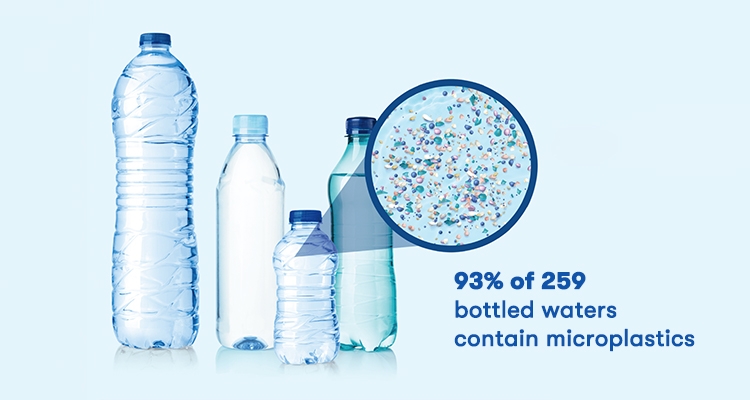
According to a 2024 study, there are 240,000 tiny pieces of plastic in every litre of bottled water on average2. Today, let’s further explore how Malaysians are affected by microplastic contamination in terms of health, particularly in the human gut.
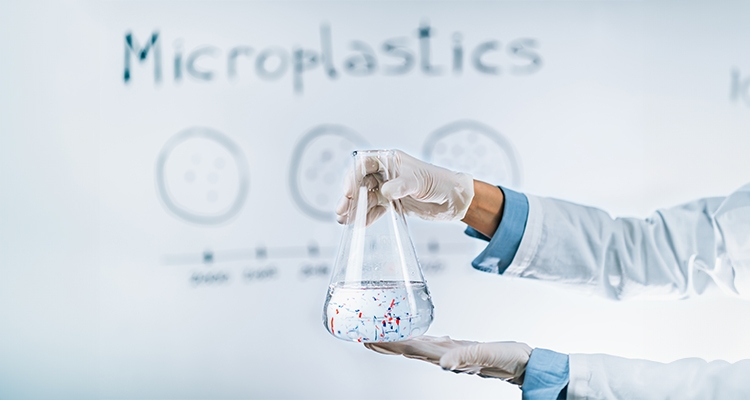
Microplastics are tiny plastic particles, typically less than 5 millimetre in diameter. Small enough to inhale, microplastics are the result of degradation of larger plastic waste in the environment. These harmful particles can come from various sources, including polystyrene packaging, synthetic clothing fibres, cosmetics and industrial processes.
Microplastics are pervasive in oceans, rivers and soil, posing a significant threat to marine life, ecosystems and potentially human health as they enter the food chain and water sources. A 2024 study tested 16 different poultry types, which included seafood, poultry, pork, beef, tofu and three plant-based meat alternatives, and found that 88% of them contained microplastics3.
That’s a lot of microplastics making its way straight to your gut. And with environmental pollution on the rise globally, microplastic consumption has emerged as a significant issue in Southeast Asia.
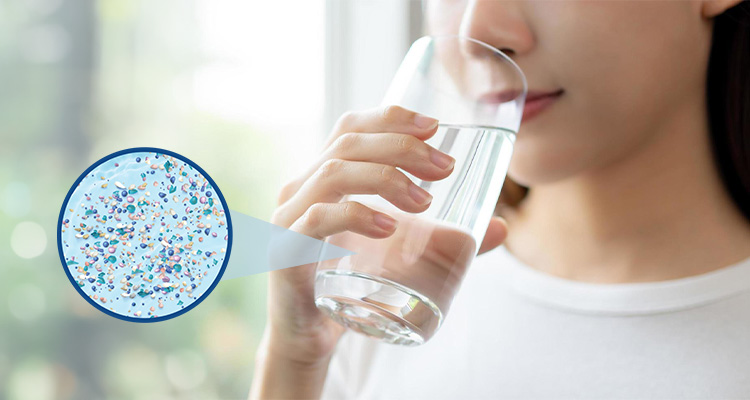
Did you know that Malaysia ranks the highest among 109 countries for consuming microplastics?4 A recent study found that Malaysians eat an average of 502.3mg of microplastics daily4. This indicates that Malaysian waters could potentially be a significant source of microplastic pollution.
More research conducted in Kuala Kerus and Kuantan on the East Coast of Malaysia tested colon samples of 11 Malaysian adult residents who were mostly in their forties. At the end of the 2021 study, it was concluded that microplastics were ubiquitously present in the human colon5.
Now, let’s spare a few minutes to ponder over this alarming fact. Ask yourself: what kind of serious impact can that have on our digestive system and overall health and wellbeing?
Joint research from various universities in New Zealand has strongly suggested that microplastics could be a driver for early onset of colorectal cancer6. While the research is still in its early stages, the study suggests that microplastics in our gut could disrupt our colonic mucus layer, which reduces its protective effect, thus resulting in a higher likelihood of developing colorectal cancer.
Given the potentially harmful health effects of microplastics in our body, is there a way for us to avoid ingesting microplastics altogether? Well, until further advancements in developing safer biodegradable alternatives have been made, this seems highly unlikely.
Humans have depended on plastic for ages and may continue to do so for a while. Even if the entire world would universally adopt sustainable practices today, it would be a long time before your gut can fully expel all the microplastics that have been absorbed by your body over the years.
It is important to strengthen our gut bacteria and microbiome health against the inevitable exposure to microplastics within our food and water. Given that scientists are still in the early stages of discovering the effects of microplastics on our bodies, we need to do our part by looking after our health and using suitable tools to stay healthy.
For a start, choose a water purifier that can effectively reduce microplastics from your drinking water while leaving in essential minerals for optimum health.
With its advanced e3 Carbon Filter, the eSpring Water Purifier reduces over 170 potential contaminants such as microplastics and pharmaceutical waste. Thanks to 3 layers of premium filtration, you know every glass contains only clean and healthy water for healthy living.
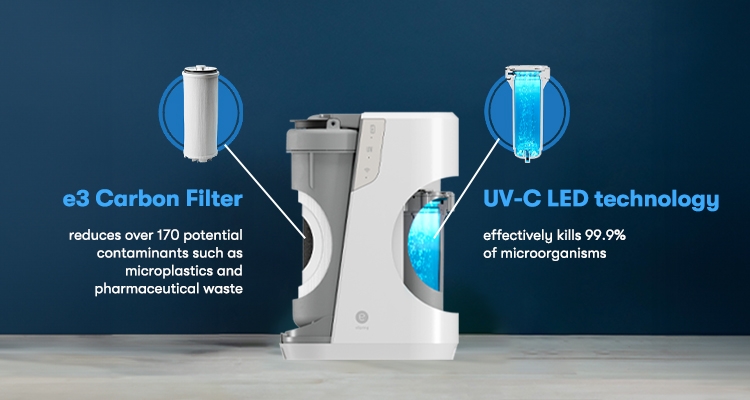
In addition, its pioneering UV-C LED technology effectively kills 99.9% of microorganisms. This includes organisms like bacteria, viruses and cysts that may be present in your drinking water.
No wonder the eSpring Water Purifier is the first water purifier to be certified with NSF/ANSI Standard 55 for CLASS B microbial reduction and all four NSF/ANSI Standards: 42, 53, 55 and 401.
Drink healthy water for healthy living and support your gut health today!
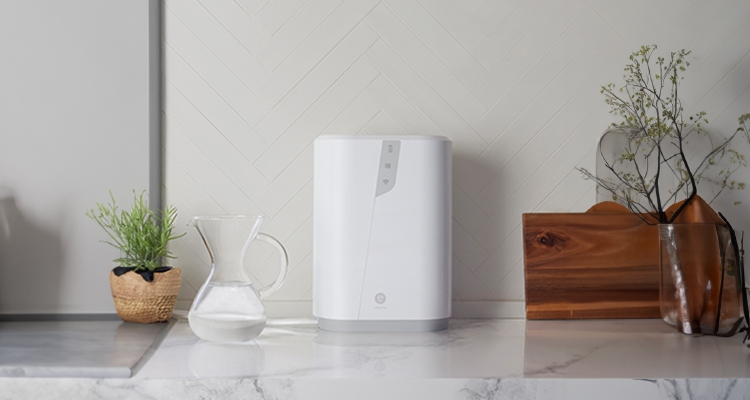
Presale of the new eSpring Water Purifier is available for Platinums & Above until 31 Aug 2024.
Get ready for the official launch on 1 Sep 2024!
References